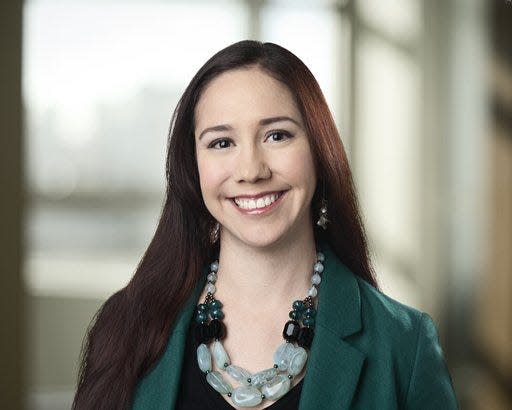We need to talk about race and racism in our schools. It's unfair to all children to do otherwise.

What good has ever come from avoiding — or forbidding — teaching and talking about history and current events in school? Not much.
Yet, over half a dozen states recently passed laws banning teachers from including vital discussions about race and racism in America. Other states and school boards are following suit.
The result: important lessons are getting shelved. For example, critics called for schools to ditch an autobiography about Ruby Bridges who integrated her New Orleans school, saying it made white students feel uncomfortable. This an important story about a part of America’s history, its progress, commitment to equality and resilience.
Likewise, critics argued a book about an immigrant family’s effort to integrate California schools promotes prejudice among children, despite its clear message: Racism is wrong.
It’s hard to believe it’s come to this. Book banning is anti-American, and these efforts threaten to seriously undermine K-12 education, the well-being of our students and democracy.
Proponents of the laws are pushing for them under the guise of opposing a legal and academic framework, Critical Race Theory. It is more likely a reactionary stance to recent racial justice movements that exposed inequities in U.S. institutions, including schools.
The research is clear that talking about race is beneficial for all students. A new resource from The Aspen Institute explains the research base surrounding race in education and why the new laws are harmful.
For starters, saying children don’t see race is simply untrue. Infants as young as 9 months old show awareness of race and ethnicity, and preschool children fully understand social categories like race and gender. A study commissioned by Sesame Workshop showed 86% of children ages 6-11 think people in the U.S. are treated unfairly based on race.
Telling schools to ignore students’ awareness of race, racism and stereotypes is dangerous and can lead to increased prejudice. Furthermore, discussing race and racism in school has been shown to prevent prejudice in white students and students of color.
Evidence shows widespread academic benefits to talking and teaching about race and ethnicity in the classroom. These benefits include higher attendance rates, and higher achievement and graduation rates. Additionally, research shows those who have positive racial-ethnic identities have more positive attitudes toward those from other racial-ethnic backgrounds.
Policymakers should take the following steps:
• Stay committed to equity and providing learning environments that promote a sense of belonging for all students.
• Allow schools to teach children about all aspects of America’s history, including those that relate to race and racism.
• Prepare teachers to have conversations that matter — including about race — and to hold all students to high expectations. We need to support teachers with professional development to deliver developmentally appropriate, culturally responsive lessons, and equip them with instructional materials that take race and culture into account.
• Engage students and families in critical conversations about race, racism, and what’s happening in school.
While I am worried about the push to prevent the teaching of accurate history in schools, there are also reasons to be optimistic. I’ve seen local and state boards of education, like the Kansas’ State Board of Education commit to equity even in the face of extreme criticism. And students are standing up: in one Pennsylvania community, students successfully spoke out against attempts to ban books that told the stories of Rosa Parks and Martin Luther King Jr.
I’m hopeful these stories will be beacons of light and policymakers will follow a path putting research, equity and empathy at the center of teaching and learning. So much is at stake — for our children and for our country.
Danielle Gonzales is managing director of the Education & Society Program at the Aspen Institute.
This article originally appeared on Topeka Capital-Journal: Laws banning teachers from talking about race are unfair to children